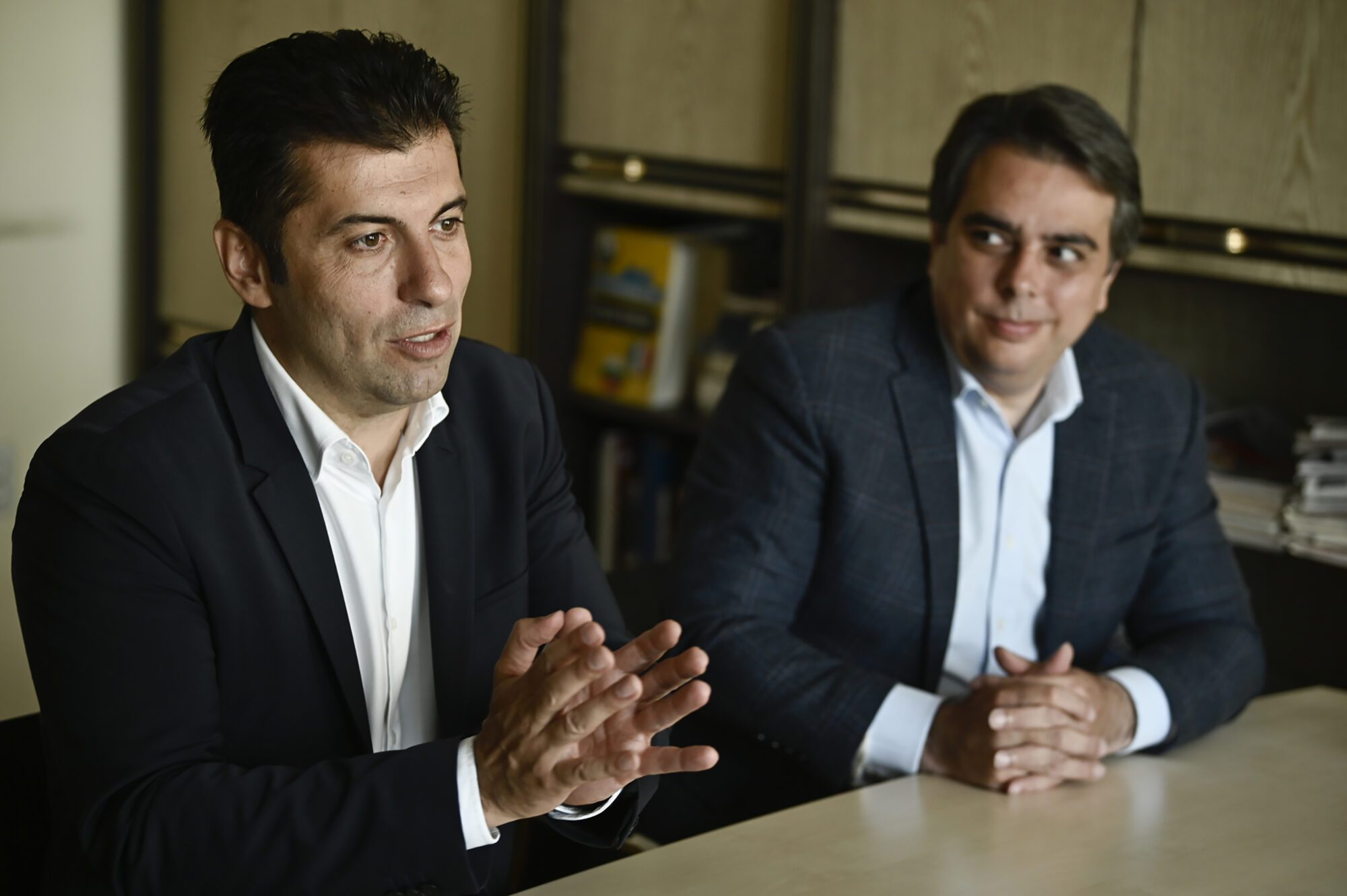
Bulgaria’s former Minister of Finance Asen Vassilev (R) listens to Bulgaria’s former Prime Minister Kiril Petkov.
Photo by Nikolay Doychinov / AFP
The final results of the Bulgarian parliamentary elections held on Sunday, April 2nd, gave victory to former Prime Minister Boïko Borissov and his centre-right party, GERB (Citizens for European Development of Bulgaria), closely followed by the liberal and anti-corruption centrist party PP (Continuing the change) led by Kiril Petkov. Neither party is in a position to form a government on its own—and the prospect of a collaboration between them is fading, plunging Bulgaria once again into limbo.
In this latest election—the fifth in two years—Borissov’s party won with 26.5% of the vote, compared to 24.5% for his main opponent Kiril Petkov and PP.
Borissov reached out to his rival in an attempt to form a coalition government. Neither of the two leading parties has the majority to govern, and alliances for a joint government are proving particularly complex to achieve. Indeed, the third largest party in terms of votes, which has grown significantly since the last elections in October 2022, is an openly nationalist and pro-Russian party, Renaissance. Insofar as both Borissov and Petkov are pro-European and Atlanticist, neither of them can conceive of a rapprochement with Renaissance to form a government alliance. For this reason, Borissov considered proposing a rapprochement to Petkov—which the former declined.
Kiril Petkov’s newly formed party, Continuing the Change, has become known for its anti-corruption line. Its accusations are mainly aimed at former prime minister Boïko Borissov, who the PP accuses of being the head of a vast mafia-like system. In March 2022, after Petkov had come to power in November 2021, Borissov was arrested on suspicion of embezzling European funds. He was briefly jailed along with other members of his government.
Today, Petkov does not believe that an alliance with Borissov and his party, GERB, is possible without disavowing his initial political commitment. “We will not support GERB because of our values. Citizens must be sure that what was promised will be fulfilled when they vote for us,” Petkov explained. For Borissov, this is nothing less than “stubbornness” immobilising the country by preventing the formation of a government around the two main political formations: “Much more is achieved with patience than with stubbornness,” he declared on Facebook shortly after Petkov’s announcement.
There are now several options for Bulgaria. Borissov can try to build a coalition with other minority formations, always with a view to maintaining a pro-European line—thus without Renaissance. He could choose to turn to an alliance with the Turkish minority party and the Socialist Party. But this unlikely coalition has a bad reputation in Bulgaria as it is suspected of previously having encouraged electoral fraud by introducing paper ballots. If this combination fails, the Bulgarian constitution provides that it will be up to Petkov’s party to try, in turn, to form a viable coalition.
The stalemate scenario that has paralysed Bulgaria for many months seems to be playing out again.
